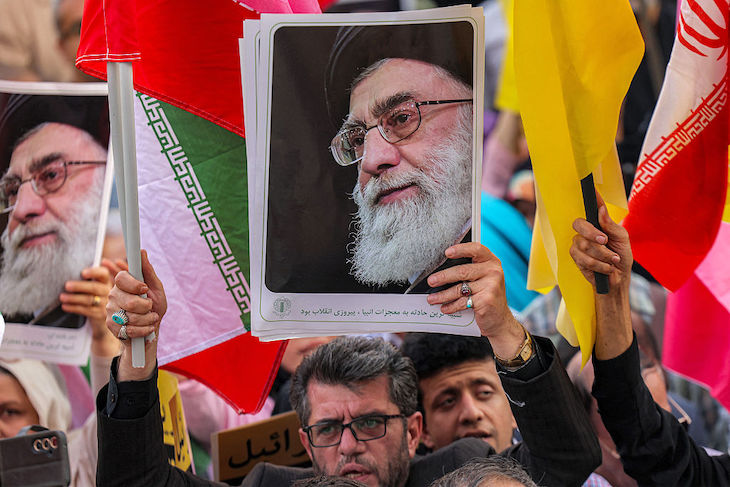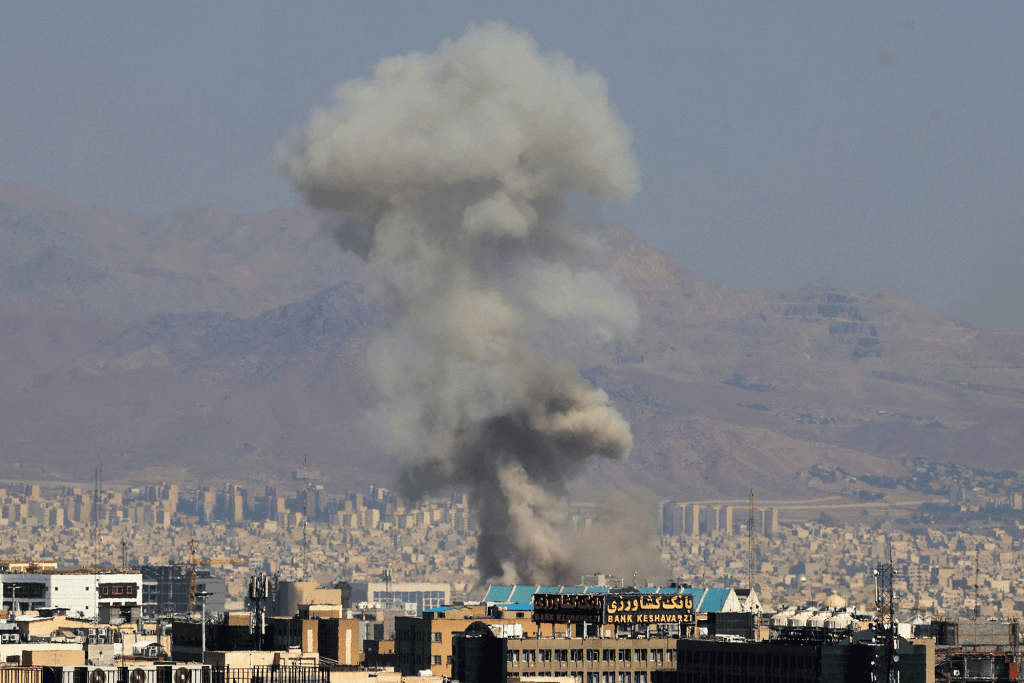Iran’s crumbling regime is fighting a war to the death on two fronts. The first and foremost is the conflict with Israel. It is safe to say that the Israelis – so far at least – are winning comfortably. The other conflict is the fight the mullahs are waging against their own people. The outcome of that battle is much harder to predict. The initial success of the Israeli strikes has given Iranians an unprecedented chance to seize the moment and topple their oppressors. Can they do it? Will they do it? And what becomes of the country if it frees itself from despotic rule?
The rift between Iranians and their rulers is as great as it has ever been
The rift between Iranians and their rulers is as great as it has ever been. For 46 years – ever since the 1979 revolution in which Ayatollah Ruhollah Khomeini seized power and turned the country into an Islamic republic – Iranians have lived under the iron grip of this tightly-knit group of fanatics. A ruling cadre hellbent on crushing individual freedoms. Every form of genuine opposition, civil and political, has been neutered. Yet, suddenly and unbelievably, the tables have been turned by the events of the last week. The mullahs, so used to dishing out punishments and ruling through fear, have been given a taste of their own medicine. The ruling cadre looks vulnerable and rattled. Even the supreme leader Ayatollah Ali Khamenei is not safe. The regime lies exposed as complacent and incompetent, barely able to defend the country. The mere fact that the Israelis managed to kill so many senior figures in the Iranian high command could only have happened with the active help of regime insiders at the highest levels. Even some of the regime’s own would appear to hate it.
The moment is heavy with possibilities, but Iranians are understandably wary. Several times in recent decades the population has tried to rise up against their rulers, only to be crushed and beaten back. Some 500 people were killed during the recent mass protests against the killing of a young woman, Mahsa Amini, by the morality police for not wearing a veil. Many others were jailed. Iran’s dissidents do not lack for guts. It’s just that they’ve been worn down too many times before.
There are other difficulties. The opposition forces are fragmented, with no real leader or figurehead, and no common political agenda. Some have touted the exiled Iranian former crown prince, Reza Pahlavi, the son of the former Shah, as a possible solution. It sounds far-fetched. Some opposition groups want a secular democracy, others favour a parliamentary monarchy. They may be united by hatred of the mullahs but have no real ideas for what comes next.
Opponents of the regime also lack the arms necessary for any drawn out struggle for power. Overthrowing a regime in the midst of an external war – especially one with Israel – will not be straightforward.
What about some other faction taking control? Ultimate power in Iran resides in the hands of the military and, in particular, the hardliners in the Iranian Revolutionary Guard Corps (IRGC). Would any of these groups be tempted to move against the mullahs? It is hard to see them staging a coup because they are already effectively in power.
What else makes this developing situation so uncertain? Well, the instinct of the mullahs will be to survive at all costs. Relinquishing power is not in their DNA. The decisive period in the regime’s history is the 1980-88 war between Iran and Iraq. Hundreds of thousands lost their lives. Millions were displaced. The cost of the war ran into billions. Yet far from weakening the regime or triggering its downfall, the conflict strengthened its hold on power. They used the sacrifice of war to push a narrative of sacred defence of the country. They will try to do the same this time, if they can, by exploiting the rising civilian death toll across the country.
Iran is at a crossroads. Few will mourn the end of a theocracy that sponsors terror and has spent 40 years agitating for the destruction of the West, namely Israel and America. But history – in Iraq and more recently Syria – offers a timely warning. Yes, regimes in places like Iran can collapse and do so swiftly. Yet what comes after is not democracy and freedom but chaos and violence. Can Iran be the exception to this rule? I wouldn’t bet on it.








Comments